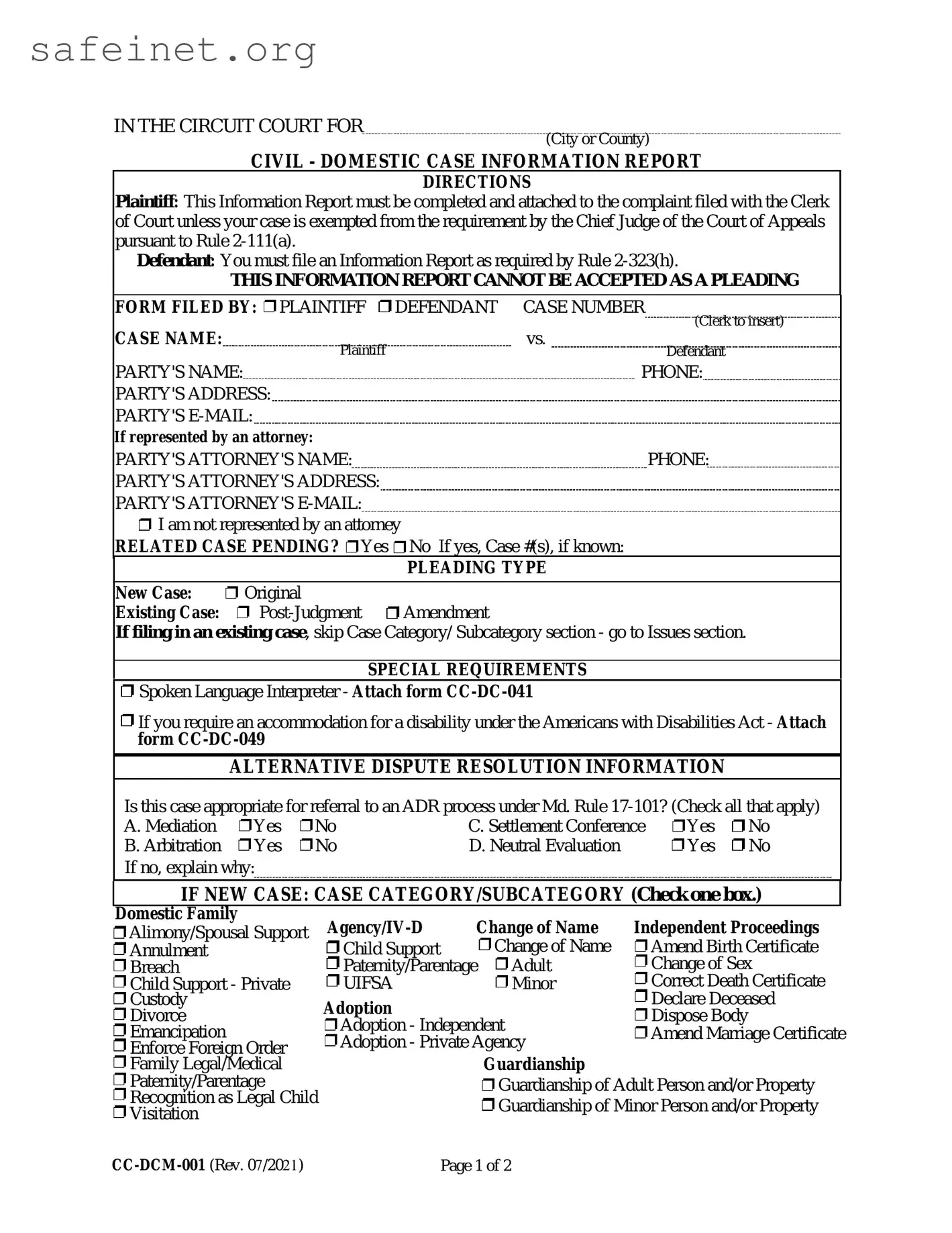What is the Domestic Information Report form used for?
The Domestic Information Report form serves as an essential document in civil domestic cases filed in Circuit Court. It collects vital information about the parties involved, including their contact details and the nature of the case. This form must be completed by the plaintiff and attached to their complaint. The defendant is also required to submit this form, ensuring that the court has comprehensive details about both parties. Having this information facilitates the court's processing of the case and helps ensure that all parties are appropriately represented throughout the legal process.
Who is required to submit the Domestic Information Report?
Both the plaintiff and the defendant in a civil domestic case are required to complete and submit the Domestic Information Report. The plaintiff must attach it to their initial complaint filed with the Clerk of Court. Similarly, the defendant must file their own report as per court guidelines. It’s important to note that if the case is exempt from this requirement, the Chief Judge of the Court of Appeals will make that determination, ensuring that all legal protocols are followed appropriately.
What information must be included in the Domestic Information Report?
The report requests specific details from both parties. This includes names, addresses, phone numbers, email addresses, and attorney information if they have legal representation. Additionally, it seeks to categorize the type of case being presented—such as child support, divorce, or custody issues—and any outstanding matters that might arise during litigation. If there are issues related to domestic violence or other complications, these should also be noted. This comprehensive information assists the court in understanding the context of the case right from the start.
What happens if I don't submit the Domestic Information Report?
Failing to submit the Domestic Information Report can complicate your case significantly. Courts typically require this document to proceed with your filing. Without it, your complaint may be delayed or even rejected. Ensuring the report is completed and filed on time is crucial for maintaining the court’s schedule and upholding your rights within the legal framework. Always strive to comply with this requirement to avoid any unnecessary setbacks in your case.




 Spoken Language Interpreter -
Spoken Language Interpreter - 
 If you require an accommodation for a disability under the Americans with Disabilities Act -
If you require an accommodation for a disability under the Americans with Disabilities Act - 

 Property
Property
 Paternity/Parentage
Paternity/Parentage